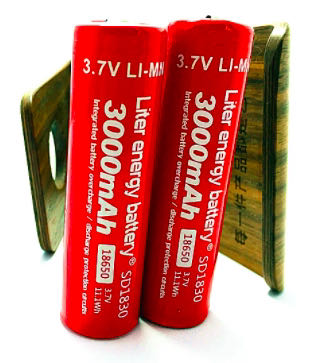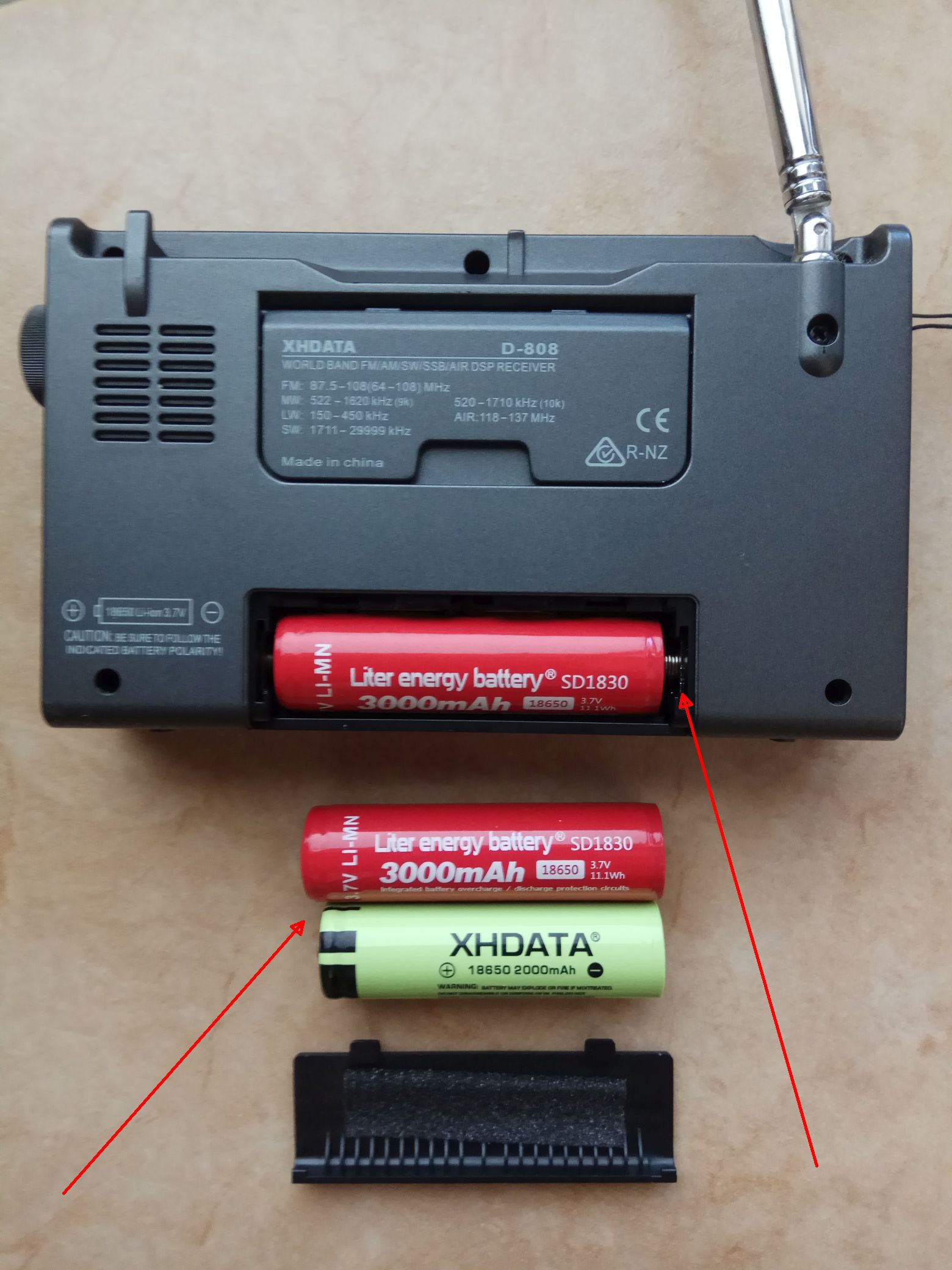 Many thanks to SWLing Post contributor, Adi, who writes:
Many thanks to SWLing Post contributor, Adi, who writes:
Hi Thomas,
Recently I received from AliExp two 18650 3000mAh batteries to replace the aging original XHDATA for my D-808.
As you can see they are ~3mm longer than the original.
They still fit, but the spring is crushed to its minimum and the cover will not fit nicely unless I trim its inning a bit, with a knife .
A shorter one was on the page pictures when I order on AliEx, but I did not have the option to select it and I didn’t ask the seller.
The added 3mm is a new protection circuit
I charged them in the D-808 and, so far, they preform very well.
In order not to damage the spring, I decided to use these batteries only on long listening sessions and then put the original 18650s in, when the D-808 is at rest.
So when one is out there shopping for 18650s, it’s important to take note of their size.
Regards, Adi
Many thanks, Adi. I do see where the seller is noting the increased length of each cell to accommodate the protection circuit. It might be difficult to judge in advance, however, if a particular radio or device can cope with these slightly larger cells. Thank you for sharing this, Adi!


I advise against using protected Li-ion cylindrical batteries in any radio. Protected batteries were quite common more than ten years ago. Today, devices designed for Li-ion batteries have protection circuits included as part of the device. Today, there are better chemistries available for Li-ion batteries that make add-on protection circuits unnecessary.
Protection circuits may generate RFI that could interfere with radios. The better and safer Li-ion batteries include IMR (LiMN) and INR (LiNiMnCoO2).
Every radio that I have seen that uses cylindrical Li-ion batteries uses a button-top rather than a flat top positive terminal. Look for button-top unprotected 18650 batteries for the best fit.
Quality Li-ion batteries of all chemistries should be good for at least 350 charge cycles. If yours don’t last that long look for quality, authentic batteries made by Samsung, Sony, Panasonic, Sanyo and others.
I also suggest buying Li-ion batteries from respected battery retailers, not Chinese discounters like AliEXP or DHgate. Look for online retailers like Orbtronic.com or 18650batteystore.com.
When it comes to rechargeable batteries for radios my favorite is the AA-sized Ni-MH, like the Panasonic Eneloop. These batteries can last for over 2,000 charge cycles. Standard non-rechargeable batteries like Duracell Coppertops may be used in their place. I keep a brick of Duracells on hand for the zombie apocalypse when there may be no household power available to charge batteries. Costco will sell a 40-pack of these for well under US $20. To use Ni-MH/Duracell AA you need a radio designed to use these batteries like my Sangean and Eton portable shortwaves.
What size is an 18650 cylindrical battery? An 18650 measures 18 mm in diameter and 650 mm in length. These are overall measurements including the wrapper and the positive terminal (button-top or flat top).
Correction: An 18650 measures 18 mm in diameter and 65 mm in length. These are overall measurements including the wrapper and the positive terminal (button-top or flat top). For protected batteries the 65 mm length may not include the protection board.
So, in addition to the 18650 we now have the 18680? 🙂
The battery with the built circuit are often referred to as button top
Flat tops refer to no built in circuit
Unprotected batteries are made with either flat top or button-top positive terminals. Both protected and non-protected batteries will include space for a vent between the positive terminal and the battery body.
The famous Samsung 30Q is an unprotected INR battery that has been sold in both button-top and flat-top version. Orbtronic sells safer chemistry 18650 IMRs under their own house name that are button-top and unprotected.
Dan, I went now and browsed ‘Battery Junction’ only to find quite few reviews about “too long” 18650’s, so always be careful on the order, double check… and check again.
For those who are not aware, Battery Junction is a major source for 18650s and numerous other cells. They are quick and professional. 18650s are common in pro grade flashlights (not the kind you find at Home Depot).